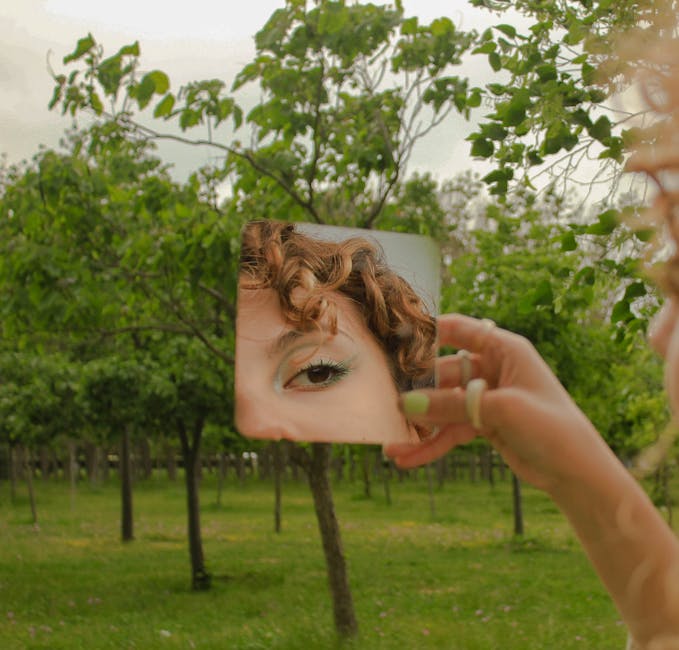Embracing the Darkness: Minimizing Eye Strain While Gaming in Dark Rooms
The allure of a darkened room, illuminated only by the vibrant glow of a monitor, is undeniable for many gamers. This immersive environment can heighten the sensory experience, drawing players deeper into virtual worlds. However, this captivating setup can also take a toll on your eyesight. Extended gaming sessions in low light can lead to eye fatigue, dryness, and even headaches. The key to enjoying the immersive experience without sacrificing your ocular health lies in understanding and utilizing adaptive brightness. This technology, coupled with other healthy gaming habits, can significantly reduce eye strain and allow you to game comfortably for longer periods. This article explores the benefits of adaptive brightness and provides practical tips for minimizing eye fatigue while gaming in dark rooms. Learn how to strike the perfect balance between immersion and eye health, ensuring countless hours of enjoyable gameplay.

Adaptive Brightness: Your Eyes’ Best Friend in the Dark
Understanding Adaptive Brightness
Adaptive brightness, also known as automatic brightness, is a feature that automatically adjusts your screen’s brightness based on the ambient light in your surroundings. This dynamic adjustment ensures your screen isn’t overly bright in dark environments and not too dim in brightly lit areas. This feature is crucial for gamers who prefer dimly lit rooms, as it prevents the screen from being a jarring source of light, thus reducing strain on the eyes.
This technology uses a sensor, usually located near the webcam, to detect the surrounding light levels. Based on these readings, the software adjusts the screen’s brightness in real-time. This dynamic adjustment is designed to optimize visibility and comfort, regardless of the lighting conditions.
By automatically dimming the screen in dark rooms, adaptive brightness minimizes the contrast between the screen and the surrounding environment. This reduced contrast lessens the strain on your eyes, making extended gaming sessions more comfortable.
Enabling and Optimizing Adaptive Brightness
Enabling adaptive brightness is typically a straightforward process. In most operating systems, you can find the setting within the display settings menu. Look for options related to “brightness” or “adaptive brightness” and toggle the feature on. Some monitors also have built-in adaptive brightness settings accessible through the monitor’s on-screen display (OSD).
While the automatic adjustments are generally effective, you might need to fine-tune the settings for optimal comfort. Experiment with the brightness slider even when adaptive brightness is enabled, finding the sweet spot that suits your preferences and the specific lighting in your gaming environment.
Consider using third-party software for more advanced control over your screen’s brightness. These applications often provide features like scheduling brightness changes based on the time of day and custom brightness curves for finer adjustments.
Beyond Brightness: Additional Tips for Eye Comfort
The 20-20-20 Rule
The 20-20-20 rule is a simple yet effective technique for preventing eye strain. Every 20 minutes, look at an object 20 feet away for 20 seconds. This brief break allows your eye muscles to relax and refocus, reducing fatigue.
Implementing this rule can be easily integrated into your gaming routine. Set a timer or use a browser extension to remind you to take these short breaks. These brief interruptions can significantly improve your long-term eye health.
This simple exercise can prevent eye dryness, blurred vision, and headaches associated with prolonged screen time. It’s a vital practice for any gamer, especially those who spend extended hours in front of a screen.
Proper Posture and Screen Distance
Maintaining proper posture and screen distance is crucial for overall comfort and eye health. Sit upright with your feet flat on the floor and your back supported. Ensure your monitor is at arm’s length and the top of the screen is at or slightly below eye level.
Incorrect posture can lead to neck and back pain, which can indirectly contribute to eye strain. By maintaining a comfortable and ergonomic setup, you can minimize physical discomfort and promote better eye health.
Adjusting your screen distance ensures you’re not straining your eyes to focus on the display. The ideal distance allows you to see the screen clearly without leaning forward or squinting.
Blue Light Filters and Bias Lighting
Blue light emitted from screens can interfere with sleep patterns and contribute to eye strain. Consider using blue light filters, either built into your operating system or through third-party software, to reduce blue light exposure.
Bias lighting, which involves placing a light source behind your monitor, can also reduce eye strain by minimizing the contrast between the screen and the surrounding environment. This softer lighting setup can create a more comfortable viewing experience.
These measures, combined with adaptive brightness, can significantly improve your gaming comfort and protect your eyes from the potentially harmful effects of prolonged screen exposure.
Optimizing Your Gaming Environment
Room Lighting and Screen Placement
While gaming in a dark room can be immersive, it’s crucial to avoid complete darkness. A small amount of ambient light can help reduce eye strain by minimizing the contrast between the screen and its surroundings. Consider using a dim lamp or bias lighting behind your monitor.
Avoid placing your screen directly in front of a window or other bright light source. Glare can cause eye fatigue and make it difficult to see the screen clearly. Position your monitor in a way that minimizes reflections and glare.
Creating a balanced lighting environment can significantly improve your gaming comfort and reduce eye strain. Experiment with different lighting setups to find what works best for you.
Conclusion
Protecting your eyesight while enjoying immersive gaming experiences is paramount. Adaptive brightness, combined with other healthy gaming habits, offers a powerful solution to minimize eye strain in dark rooms. By understanding and implementing these strategies, you can enjoy countless hours of gaming without compromising your ocular health.
| Feature | Benefit |
|---|---|
| Adaptive Brightness | Reduces eye strain in dark environments |
| 20-20-20 Rule | Relaxes eye muscles and reduces fatigue |
| Bias Lighting | Minimizes contrast and improves viewing comfort |
- Use adaptive brightness
- Follow the 20-20-20 rule
- Maintain proper posture
- Consider blue light filters

Leave a Reply